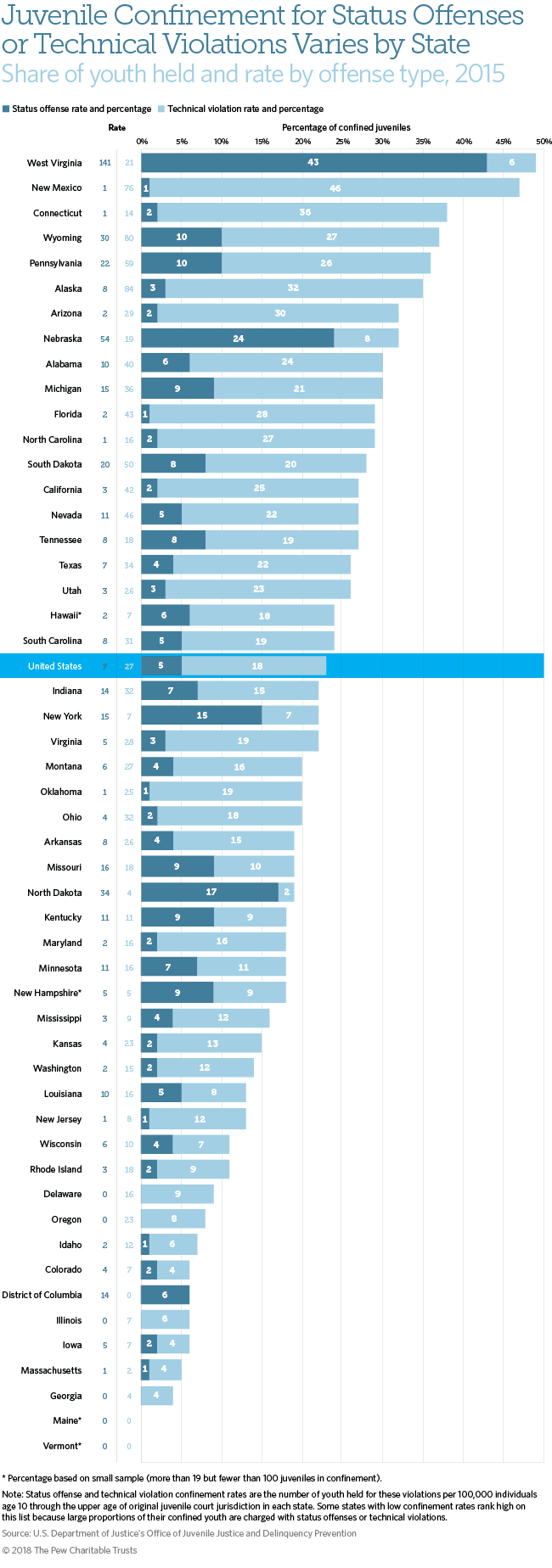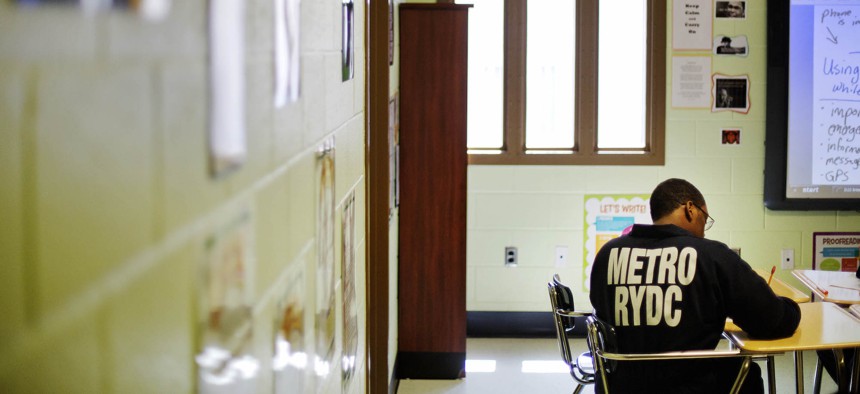Connecting state and local government leaders
Percentage of youth in residential facilities for truancy, running away, or supervision violations increases
This article was originally published by The Pew Charitable Trusts' Public Safety Performance Project and was written by Jake Horowitz and Arna Carlock.
States send less than half as many youth to residential facilities as they did in the late 1990s, but new data from the Department of Justice’s Office of Juvenile Justice and Delinquency Prevention show that many juveniles in out-of-home placements were not confined for serious and violent crimes. In 2015, 23 percent of youth in residential facilities nationwide were put there either for status offenses (5 percent)—which include truancy, running away, and underage drinking and would not violate the law if committed by an adult—or technical violations of supervision (18 percent), such as skipping meetings. This marks a small increase since 2007, when 19 percent of confined juveniles were held for such noncriminal acts.
West Virginia leads the nation in removing youth from their homes for status offenses, with 43 percent of juveniles in its facilities held for such infractions. Eight other states also confine youth for status offenses at more than double the national rate of seven per 100,000 youth. Six states report holding no youth for status offenses.
The proportion of youth confined for technical violations also varies considerably, ranging from a reported high of 46 percent in New Mexico to zero in the District of Columbia, Maine, and Vermont. Like New Mexico, the states of Alaska, Wyoming, and Pennsylvania hold juveniles for probation violations at more than twice the national rate of 27 per 100,000 juveniles.

Research has generally found that confining juveniles fails to reduce recidivism and can actually worsen outcomes for some young people. An evaluation in Ohio revealed that, for all but the highest-risk youth, recidivism was greater among juveniles sent to facilities than it was for those who stayed home and received services in the community. Another study found that incarcerated youth in Cook County, Illinois, were 23 percentage points more likely to enter adult prison by age 25 than those who received probation.
And those findings align with public priorities. In a 2014 nationally representative bipartisan survey of 1,200 U.S. voters, 9 in 10 respondents agreed that “we should save our expensive juvenile corrections facilities for more serious juvenile offenders and create alternatives for less serious juvenile offenders that cost less,” and 85 percent said that correctional institutions should not house youth charged with status offenses.
Several states have adopted innovative policies to prioritize costly residential facility space for youth who have committed serious offenses. For example:
- In 2013, Georgia’s House Bill 242 prohibited residential commitment for youth charged with status offenses and restricted confinement for those who committed misdemeanors.
- Kentucky’s Senate Bill 200, enacted in 2014, enhanced diversion options for low-level youth offenders and barred out-of-home commitment of juveniles who violated their probation.
- In West Virginia, Senate Bill 393, which passed in 2015, sought to reduce the number of juveniles removed from their homes in that state by creating a two-step diversion process for youth charged with status offenses and prohibiting confinement for some first-time status offenders.
- In 2016, Kansas’ Senate Bill 367 eliminated secure confinement for youth charged with status offenses (effective 2019) and all confinement of youth for technical probation violations.
- In 2017, Utah’s House Bill 239 limited the use of secure confinement for youth facing technical probation violation and status offense charges.
These states not only are keeping juveniles charged with these types of offenses out of residential facilities, but they also are reducing what they spend on incarceration and investing in alternatives that research shows improve outcomes for youth, families, and communities.
Jake Horowitz is director of research and policy and Arna Carlock is associate manager of research for The Pew Charitable Trusts’ public safety performance project.

NEXT STORY: Spurring Entrepreneurship Starts By Talking With Talent



